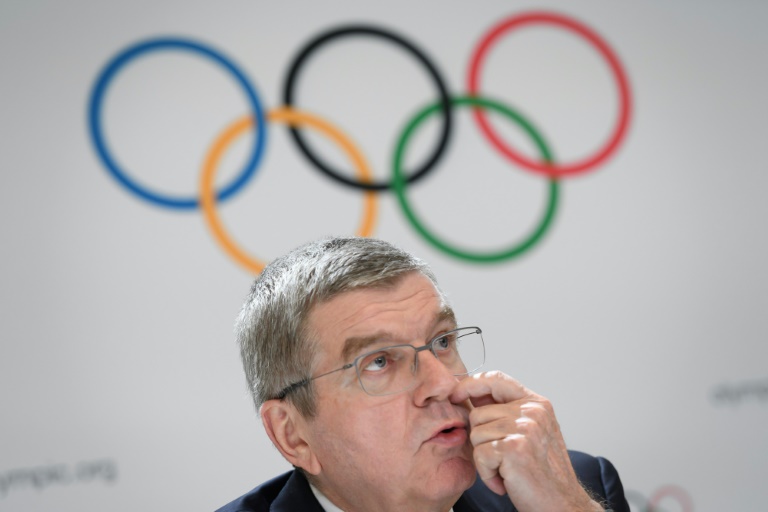IOC president Thomas Bach insisted on Friday any decision to ban Russia from international sporting events as punishment for doping must be “water-proof” and not pave a way for “total confusion”.
With less than 200 days to go before the Tokyo Olympics, the World Anti-Doping Agency (WADA) has sent its case for the exclusion of Russia to the Court of Arbitration for Sport (CAS).
CAS, the world’s highest sport court, must decide whether to confirm the four-year ban WADA imposed on Russia last month or consider Moscow’s case against the epic sanction.
Bach, speaking at the 135th session of the International Olympic Committee, said CAS has to make a clearcut decision over whether Russia is to be banned from the 2020 Tokyo Olympics, the 2022 Winter Olympics in Beijing as well as the 2022 football World Cup.
“What is important for the IOC and the international federations is that we get a decision which does not leave room for any kind of interpretation,” Bach told a news conference.
“If there is room for interpretation…this will lead to real, total confusion.
“This decision must be water-proof. This is the key.”
Sources told AFP the CAS decision would not be made before May.
The Tokyo Olympics get under way on July 24.
“Unfortunately the speed of the procedure is not in our hands,” added the IOC chief.
“We hope for a decision as soon as possible, in order to be able to make all the necessary arrangements.
“This relates to the athletes but also to all other questions.”
Newly-elected WADA president Witold Banka said he was satisfied that the case is moving forwards.
“We are not yet at the end of this saga,” said the former 400-metre runner from Poland.
“However, I am happy that we have been able to break the impasse with the Russian authorities and move the matter along in a fashion that is proportionate and tough on those responsible, while protecting athletes that can prove they were not involved or impacted.”
Read Also: Igali Hopes For ‘Better’ 2020 In Nigerian Wrestling
WADA’s announcement of the case being sent to CAS came exactly one month after they decided to impose a four-year ban on Russia over what it considers a state-sponsored doping scheme.
The global anti-doping body claims Russia “manipulated” data from an anti-doping laboratory in Moscow in the latest move in a long-running scandal that began with the 2015 revelation of long-term institutional doping involving senior Russian officials, secret agents and trafficked urine vials.
Under the sanctions, Russians would be allowed to compete at the Tokyo Olympics only if they can demonstrate they were not part of the doping network — the same situation they faced at the 2018 Pyeongchang Winter Olympics.
Russia’s Anti-Doping Agency (RUSADA) disputed the WADA executive committee ban, setting the stage for WADA to send the case to CAS.
Russian athletes have pressured their nation’s athletics governing body over its handling of the doping scandal.
Three-time high jump world champion Mariya Lasitskene was among the Russian track and field figures urging compatriots to challenge sporting authorities, warning she would quit Russia and train elsewhere so as not to miss the Tokyo Olympics after having missed the 2016 Rio Olympics due to the scandal.
AFP SPORTS

